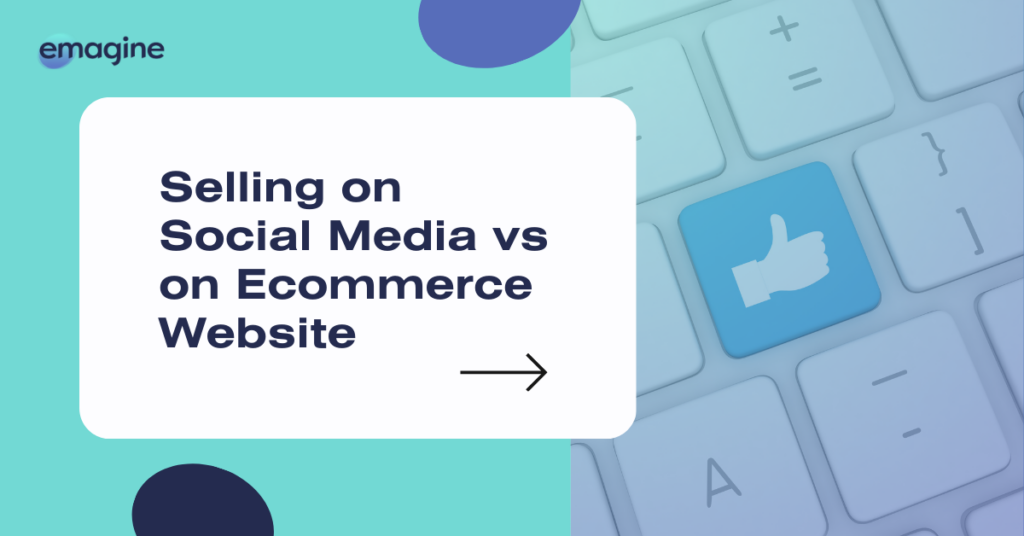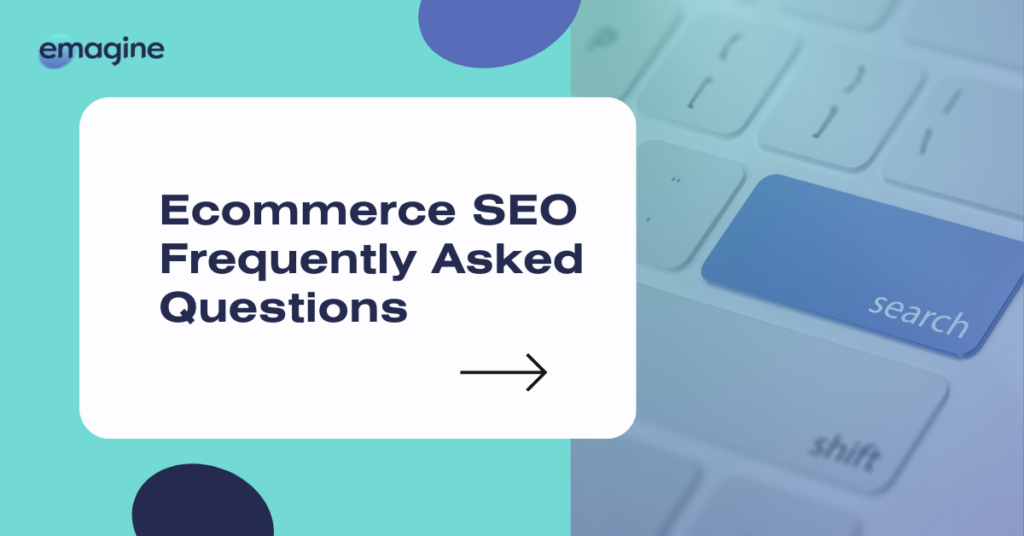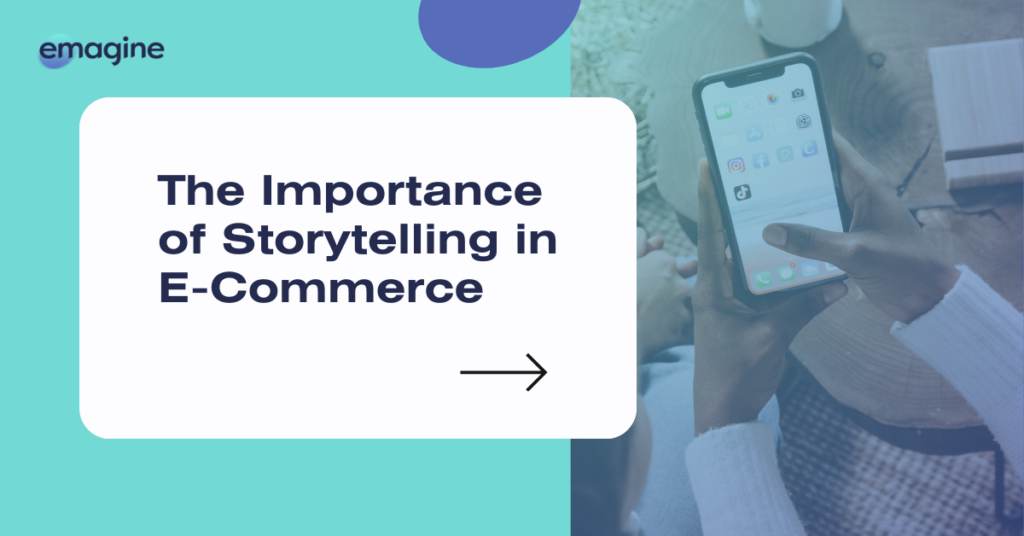In the ever-evolving digital landscape, traditional e-commerce is continuously being reshaped by the rise of social media. Businesses now have to consider the advantages and disadvantages of social commerce vs ecommerce platforms to make the most of the available online sales opportunities.
Social commerce has emerged as a powerful contender to traditional e-commerce since it leverages the interactive and dynamic nature of social platforms to create a new kind of shopping experience.
On the other hand, e-commerce websites offer a more robust and customized online presence and shopping experiences for businesses.
In this article, we will delve into the pros and cons of both social commerce and e-commerce, providing valuable insights to decide the best approach for your online growth.
The Pros & Cons of Selling on an E-commerce Website
E-commerce websites offer a dedicated platform for brands to showcase their products, independent of the distractions typically associated with social media.
This route allows businesses to build a robust, comprehensive digital presence that directly reflects their brand identity and values.
Dive in with us as we explain the advantages and disadvantages of selling on e-commerce websites.
Ecommerce Website Advantage #1: Complete Control over Branding & Customer Experience
E-commerce platforms give businesses the ability to design and control every aspect of the customer’s shopping experience, from the landing page to the checkout process. This autonomy allows businesses to present their brand in a way that is consistent with their vision and goals.
Companies can customize the aesthetics, layout, and navigation of their website, immersing customers in a fully branded experience. This level of control is rarely achievable on social media platforms, which have fixed layouts and limited customization options.
Furthermore, on e-commerce platforms, businesses can offer tailored customer experiences. They can optimize the user journey, offer personalized recommendations, and streamline the checkout process to increase conversion rates.
This level of personalization plays a crucial role in enhancing customer satisfaction, fostering loyalty, and ultimately driving repeat sales. Social media platforms, on the other hand, offer a more generic shopping experience, which may not be as effective in building long-term customer relationships.
Don’t miss out on the digital revolution!
Get insider tips and strategies on ecommerce, AI, and digital marketing – delivered weekly to your inbox.
Ecommerce Website Advantage #2: Enhanced Data Capture & Analytics
E-commerce platforms are equipped with comprehensive tools for data capture and analytics, giving businesses deep insights into customer behavior, preferences, and shopping patterns.
This empowers companies to understand their customers at a granular level, enabling targeted marketing and sales strategies, and improving the overall customer experience.
In contrast, social commerce often offers limited and fragmented data, as customer interactions are spread across different social media platforms, making it challenging to consolidate and analyze data effectively.
Moreover, the data captured on e-commerce platforms facilitates advanced analytics such as predictive modeling, customer segmentation, and trend forecasting. These analytics can drive decision-making, from refining product offerings to determining optimal pricing strategies. They also enable businesses to measure the effectiveness of marketing campaigns, making it easier to tweak and optimize strategies for better performance.
While social media platforms do offer some level of analytics, they typically fall short of the depth and breadth provided by e-commerce platforms, making e-commerce a more sophisticated choice for businesses serious about leveraging data for growth.
Ecommerce Website Advantage #3: SEO & Organic High-Intent Traffic
E-commerce platforms stand out when it comes to driving organic traffic through search engine optimization (SEO).
A well-optimized e-commerce website can attract high-intent traffic through search engines, leading to higher conversion rates.
E-commerce platforms allow businesses to implement a comprehensive SEO strategy, encompassing keyword optimization, meta-tagging, image optimization, and creating SEO-friendly URLs.
This in-depth control over SEO factors can significantly enhance a website’s visibility on search engine results pages (SERPs), drawing in customers actively seeking products or services offered by the business.
In contrast, social commerce platforms do not offer the same level of control over these SEO elements, limiting their ability to attract organic, high-intention traffic.
Moreover, e-commerce websites have the advantage of longevity in search engine indexing. Content on these platforms tends to have a longer lifespan compared to social media platforms, where posts quickly get buried under a continuous stream of new content.
This means that a well-optimized product page on an e-commerce website can continue to attract and convert visitors for an extended period, maximizing the return on investment for SEO efforts.
Social media platforms, with their fleeting content lifespan, may require more frequent and sustained content production to stay visible to the audience.
Ecommerce Website Advantage #4: Advanced Store Management & Integration Capabilities
E-commerce platforms excel in providing advanced store management and integration capabilities, unmatched by social media platforms. They offer businesses an array of sophisticated features and functionalities that streamline store management, inventory control, order processing, and shipping.
For example, businesses can seamlessly track and manage their inventory levels, automate restocking processes, and integrate with shipping carriers for real-time shipping rates and tracking updates.
Additionally, they can easily handle returns and exchanges, offer multiple payment options, and manage customer accounts and order history. These features not only enhance operational efficiency but also improve the overall customer shopping experience.
In contrast, social commerce platforms often lack these advanced store management capabilities, limiting businesses’ ability to manage their online operations effectively.
Moreover, e-commerce platforms provide robust integration capabilities with various third-party tools and applications, further extending their functionality and versatility. Businesses can integrate with CRM systems, email marketing platforms, payment gateways, accounting software, and other tools to streamline their operations and marketing efforts.
These integrations can significantly optimize businesses’ workflows, reduce manual tasks, enhance data accuracy, and ultimately drive business growth while giving them an edge over social commerce businesses.
Ecommerce Website Disadvantage #1: Website Maintenance, Costs, & Ownership
Developing and maintaining an e-commerce website can be a significant investment, both in terms of time and financial resources. The complexity of the site, the number of products you carry, and the various features you wish to include can all contribute to the overall cost.
Initially, there’s the expense of web design and development, including the cost of the platform itself if you’re using a paid solution.
The website will also need regular updates to ensure it remains secure, functional, and visually appealing. This may involve hiring a web developer or investing in-house resources, which can add up over time.
Additionally, operating an e-commerce website involves ongoing costs that extend beyond the initial development. These may include hosting and domain name fees, marketing fees, as well as payment processing fees if you offer online transactions. These costs can vary widely based on your site’s size and the volume of your sales.
While an e-commerce website can offer significant benefits, it’s essential to be aware of these potential costs and factor them into your overall business strategy.
Ecommerce Website Disadvantage #2: Marketing & Traffic Generation
For all its benefits, one of the significant drawbacks of an e-commerce website is the effort and resources required to generate website traffic.
Unlike social commerce platforms where the audience is readily available and can easily discover your products through their social media feeds, e-commerce requires a more proactive approach.
Businesses must employ various marketing strategies such as SEO, content marketing, email marketing, and paid advertising to attract visitors.
Not only is this time-consuming, but it also requires continual optimization to stay ahead of the competition and keep up with changes in search engine algorithms and consumer behavior.
Moreover, e-commerce websites often struggle with customer engagement and driving meaningful interactions. In the cluttered digital marketplace, gaining the customer’s attention and stimulating interest can be challenging without the interactive and engaging elements inherent in social media platforms.
In comparison, social commerce enjoys the advantage of being embedded in a platform designed for engagement. Users can like, comment, share, and review products, making the shopping experience more social and interactive, which can lead to higher conversion rates.
Ecommerce Website Disadvantage #3: Technical Challenges
Aside from other considerations, e-commerce websites also pose a range of technical challenges. Ensuring that the website is user-friendly, responsive, and fast-loading is crucial in today’s impatient digital world where a delay of a few seconds can make a difference between a sale and an abandoned cart.
Technical glitches, site crashes, or checkout errors can not only frustrate customers but can also lead to lost sales and diminished customer trust. Investing in quality web hosting, regular site maintenance, and a seamless checkout process is essential but can add to the complexity and cost of managing an e-commerce website.
These technical challenges, though manageable, are significant when weighing e-commerce against social commerce.
The Pros & Cons of Selling on Social Media (Social Commerce)
Just like traditional e-commerce, social commerce comes with its own set of advantages and challenges.
Businesses must understand these aspects to navigate the social commerce landscape effectively and align their digital selling strategies accordingly.
In the following sections, we will delve into the advantages and disadvantages of social commerce, providing a comprehensive perspective to help businesses make an informed decision about their online selling approach.
Social Commerce Advantage #1: Access to a Vast & Engaged Customer Base
The vast user base of social platforms is undeniably one of the greatest advantages of social commerce.
With millions of active users, these platforms offer an unprecedented reach, allowing businesses to connect with a global audience and tap into diverse markets.
This vast pool of potential customers can be particularly beneficial for small businesses and start-ups looking to scale quickly and cost-effectively.
At the same time, the engaged nature of social media users presents another significant advantage. On social platforms, users are not just passive spectators; they interact, share, and engage with the content.
This high level of engagement translates into more meaningful interactions with brands and products, fostering a sense of community and loyalty.
Brands can leverage these interactive features to build a strong brand personality, engage in real-time with their audience, and gain valuable insights into customer preferences and behavior.
The result is a more personalized and engaging shopping experience that can drive customer loyalty and increase sales.
Social Commerce Advantage #2: Cost-Effective Setup
From a financial perspective, social commerce offers significant benefits over traditional e-commerce.
The barrier to entry is virtually non-existent with a minimal start-up cost. Businesses can set up their social media stores without needing to invest heavily in website design or development.
There’s no need to hire a web developer or pay for a web hosting service, which can be a considerable saving, particularly for start-ups and small businesses.
Additionally, operating costs are also considerably lower, with no ongoing hosting fees or concerns about website maintenance and updates.
Beyond the economic setup, the straightforward nature of creating a social media store allows businesses to be running in a fraction of the time it takes to develop a full-blown e-commerce site.
They can quickly launch new products, experiment with different marketing strategies, and adapt to trends and customer feedback in real-time.
This agility can provide a competitive edge in the fast-paced digital marketplace, allowing businesses to seize opportunities and maximize their online selling potential.
Social Commerce Advantage #3: Organic Trust-Building Social Proof
The interactive nature of social media fosters an environment where customers can express their opinions about products and services. Positive reviews, comments, and shares act as personal endorsements, which can significantly boost a brand’s credibility and trustworthiness.
Consumers are more likely to trust a product that has been positively reviewed by their peers than one that simply highlights its features in an ad or on a website.
Businesses can utilize this by encouraging happy customers to share their experiences and by responding openly to reviews.
This interaction not only builds trust but also creates a community around the brand, fostering customer loyalty and repeat business.
Social Commerce Advantage #4: Streamlined Frictionless Buying Experience
A streamlined buying experience makes shopping a seamless part of the user’s social media browsing, significantly enhancing conversion rates.
With one-click purchasing options and saved payment information, the customer’s path to purchase is shortened, minimizing chances of cart abandonment and lost sales.
For businesses, this frictionless buying experience not only increases the chances of initial sales but also encourages repeat purchases, enhancing customer lifetime value.
Moreover, social media platforms are continuously innovating to further decrease friction in the buying process. They are introducing more integrated and user-friendly features, such as shopping via live streams, product tagging in photos and videos, and augmented reality try-ons.
These features not only make the shopping experience more engaging but also offer customers a closer look at products, instilling confidence in their buying decisions.
This enhanced shopping experience, combined with the power of social interaction and community, positions social commerce as a highly effective channel for online sales.
Social Commerce Disadvantage #1: Vulnerability to Platform Changes
One significant disadvantage of dependence on social commerce vs ecommerce is the unpredictable and ever-changing nature of social media platforms.
With rules and algorithms constantly evolving, there’s always the risk of a sudden change impacting business operations dramatically.
For instance, a shift in the platform’s algorithm can lead to a drastic reduction in organic reach, making it harder for products to be seen by potential customers. These sudden alterations can be challenging to adapt to, and failing to do so promptly can lead to considerable drops in sales and engagement.
Moreover, there’s the risk of sudden suspension or banning of accounts due to violations of the platform’s terms and conditions. Even an innocent mistake can lead to severe penalties, including the deactivation of the business account.
In such scenarios, businesses may lose their entire customer base overnight, with no way to communicate with or retrieve it.
This inherent instability and lack of control make dependence on social media platforms for sales an unpredictable venture, which may deter some businesses from fully adopting social commerce.
Social Commerce Advantage #2: Distracted Audience & Intense Competition
The inherent design of social media, which encourages continuous engagement with diverse content, means that potential customers can easily be distracted by other posts, notifications, or even competitor promotions.
This creates a challenging environment for businesses to achieve and maintain consumer focus, consequently impacting the effectiveness of their social commerce strategies.
The double-edged sword of transparency is another key factor to consider. While businesses can monitor their competitors’ activities, strategies, and customer engagement, the reverse is equally true.
Competitors have the same access to observe and analyze your business practices. This two-way transparency can lead to rapid imitation of successful strategies, making it difficult for businesses to retain a unique selling proposition.
Social Commerce Advantage #3: Financial, Operational, and Customer Support Limitations
From a financial perspective, the costs associated with social commerce can add up quickly. While platforms may entice businesses with promises of “free” features, the reality is that most of the advanced functionalities that significantly enhance sales and visibility come with a price tag.
Advertising costs, in-app transaction fees, and the cost of advanced analytics tools can greatly reduce the profit margin for businesses.
Moreover, as platform algorithms are increasingly designed to limit organic reach, the effective use of social commerce invariably involves substantial investment in paid promotions, which is particularly burdensome for small businesses and startups.
Furthermore, sales management and customer support can be challenging. On most social media platforms, the seller support systems are not comprehensive, which can lead to difficulties in fulfilling orders and resolving issues promptly and effectively.
This lack of formal and effective customer service systems can lead to customer dissatisfaction and harm the business’s credibility.
Conclusion
In the ever-evolving digital landscape, the key to success lies not in choosing between social commerce vs ecommerce, but in leveraging the strengths of both.
A balanced approach, utilizing social media platforms to build brand awareness and foster community, coupled with a robust e-commerce website offering a secure and comprehensive shopping experience, can provide businesses with a powerful formula for growth.
This approach mitigates the risks of depending solely on one channel while maximizing the unique strengths of each.
Ultimately, this multi-channel strategy provides resilience, versatility, and a wider reach, equipping businesses of all sizes with the tools they need to thrive in a rapidly evolving digital world.
If you’re considering venturing into social commerce or ecommerce, we recommend that you take this quick-fire E-commerce readiness quiz if you’re ready to launch or upgrade your e-commerce business.
You can also book a free one-on-one consultation with our team to discuss what works best for you and what brings more growth potential for your particular business.







